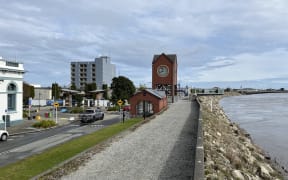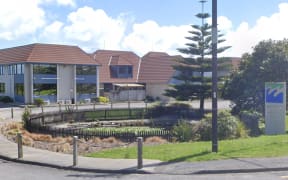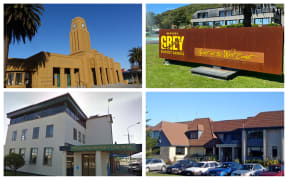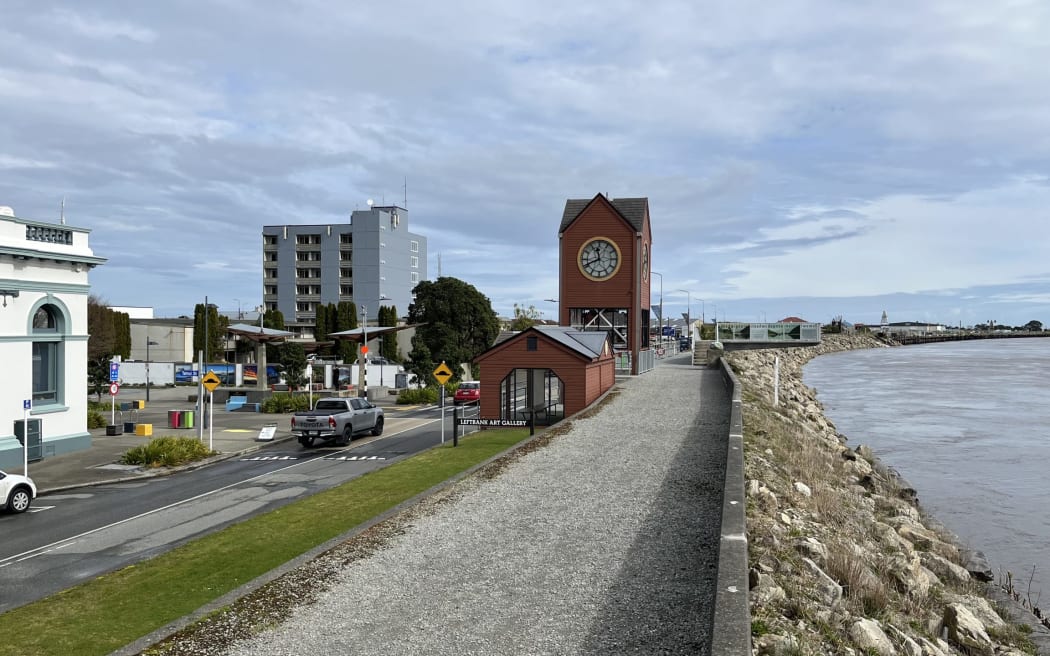
Costs of the new Greymouth Floodwall contributed to the hike. Photo: LDR / Brendon McMahon / Greymouth Star
Greymouth rates have jumped up to the shock of some households, who face an increase of 100 percent.
The West Coast Regional Council approved a nearly 17 percent general rates rise in 2023-24, during a mid-year meeting.
But the rates bill reality for many households is much higher due to council levies on top of general rates.
These include for individual special rating district flood protection schemes like the Greymouth Floodwall, and for the new combined district plan, the Te Tai o Poutini Plan (TTPP).
A Paroa ratepayer told Local Democracy Reporting that their fortnightly direct debit for regional council rates would increase by 100 percent.
The resident had been paying $25 a fortnight by direct debit. It would rise to $50 fortnightly for their new annual bill of $1174.

Only a few years ago their annual regional bill was about $400, the resident said.
A retired couple living at semi-rural Gladstone is facing a 72 percent increase, with their weekly rates bill rising from $11 to $19 - a significant hit on the pension.
A Greymouth household in Karoro is grappling with a 64 percent increase in their regional council bill.
Their new annual bill of over $952, combined with their Grey District bill, means they will pay nearly $4820 in rates this financial year.
The combined rates and loan costs for the Greymouth Floodwall special rating district in their rates bill is $403. Their TTPP cost is $79.14 and the Civil Defence and Emergency Management aspect is $52.88.
All households pay the standard annual general charge of $155.69 regardless of rating valuation.
Risk and assurance committee chairman Frank Dooley acknowledged people might be shocked at the massive increase on their annual bill.
"What people will do is see the bottom line and compare it with what they paid last year and say 'bloody hell'. I understand that," Dooley said.
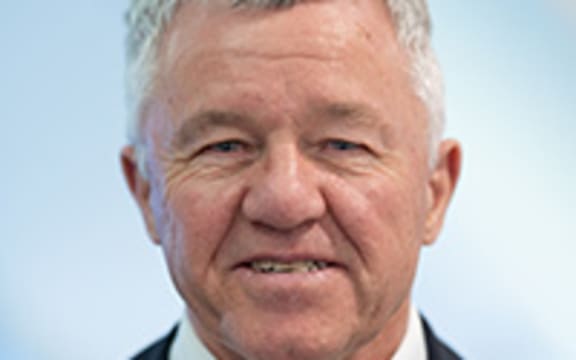
Frank Dooley. Photo: Supplied
Council had approved a general rates increase of 16.9 percent, but it had also budgeted for a deficit of just under $2m in 2023-24.
But the imposed combined district plan and the West Coast Civil Defence and Emergency Management costs also had to be fully factored in.
"The other complication for the regional council rating is we have all these special rating districts ... it's not just a simple calculation or a simple comparison."
Dooley said council had been in "a rating deficit" for years. The "snowball effect" of continuing to borrow to cover it eventually had to be shouldered, he said.
"You can't continue to rate from a deficit… We had to apply an increase for both civil defence and the one district plan (TTPP)," he said.
Dooley said the rates increase component for the TTPP was "still insufficient".
"We've got all the responsibility around rating and collecting the money but we have no over control what's spent."
On top of that the CDEM component had been insufficient.
"That's sad but that's the reality of it. The regional council is picking up these two… on behalf of the region."
Dooley said council had to grapple with the compounding problem of not increasing rates enough and lack of resources to meet its statutory obligations.
A rundown of backhouse function, plant and equipment had been challenging, he said.
"We're not in a situation to respond - we don't have the luxury of any staff. You can't go through life like that."
Dooley said the new council "had to face reality, bite the bullet and take it on the chin" by increasing rates.
"From my perspective it's not big enough. Once again we budgeted for a deficit of just under $2m. You cannot budget for a deficit year one year and expect to recover it the next year."
Local Democracy Reporting is Public Interest Journalism funded through NZ On Air.

